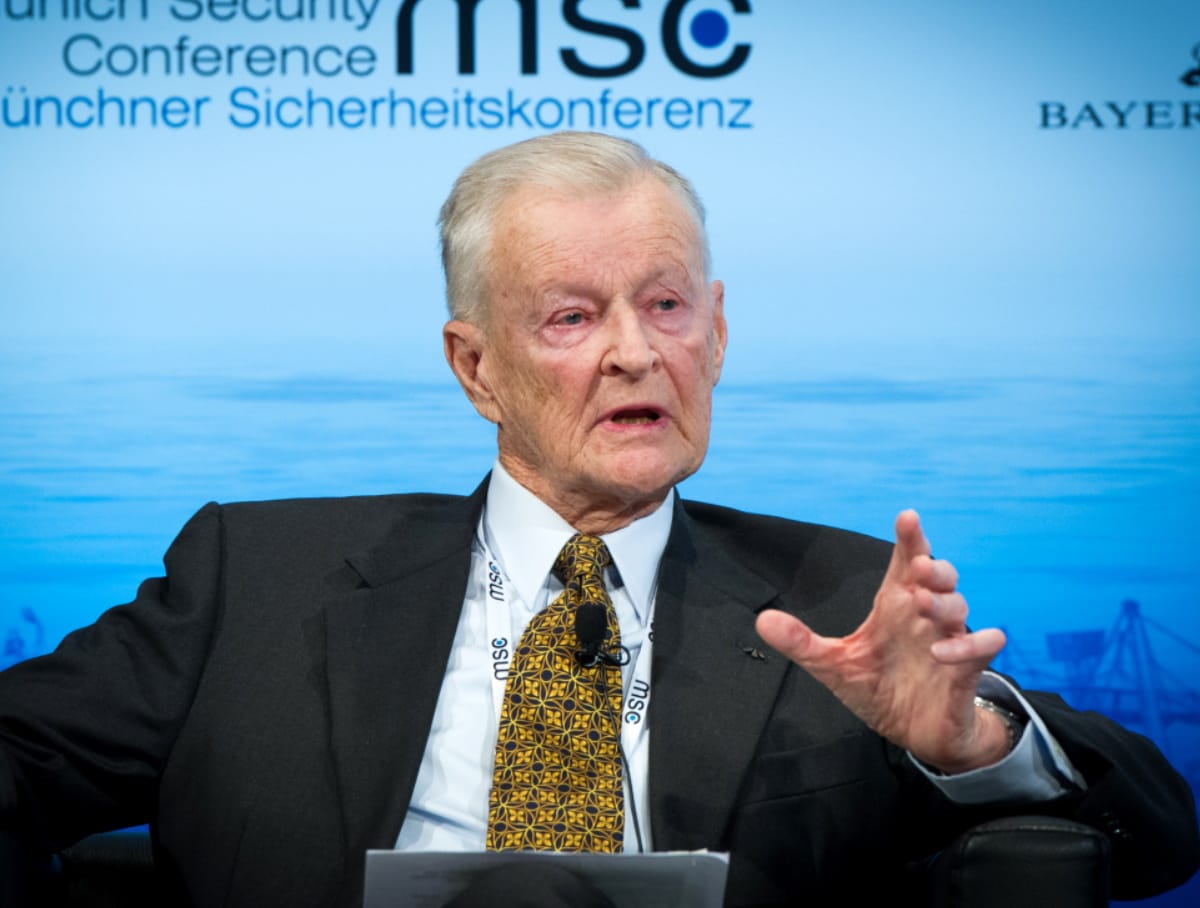In recent years, a quote attributed to one of the main strategists of American foreign policy has gained popularity in Russia. We checked whether its author is indeed political scientist Zbigniew Brzezinski.
In its full form, the distributed quote looks like this: “After the victory over communism, we need a split in Orthodoxy and the collapse of Russia. And Ukraine will help us in this, where betrayal is the norm of public morality.” It is often additionally indicated that the source of the quotation is Brzezinski’s famous book “The Great Chessboard”. In November 2018, a statement quoted Ukrainian political expert Dmitry Spivak on the NewsOne TV channel. Quote brought Deputy Chairman of the State Duma Commission on Legal Support for the Development of Organizations of the Military-Industrial Complex of the Russian Federation Sergei Gavrilov. It has gained great popularity in social networks such as Facebook (example with 380 reposts), "VKontakte" (32,000 views publications in the “Patriots of Russia” community dated March 1, 2022) and “Odnoklassniki” (8000 views). The quote can also be seen on the resources Newsland, "World of News" and on the website Center for Strategic Assessments and Forecasts.
American political scientist Zbigniew Brzezinski is known as an irreconcilable fighter against the communist regime, so such a quote from him does not look like something impossible. However, firstly, we note that Dmitry Spivak, and after him many resources, incorrectly conveyed the title of Brzezinski’s main work. The book is not called “External Chessboard. American Primacy" and "The Grand Chessboard: American Primacy and Its Geostrategic Imperatives." Secondly, the Russian text of the book is in free access, and we did not find a similar quote - even adjusted for inaccuracy of translation - in it. Close to the topic, it is only said that in post-Soviet times “communism was branded as a betrayal of Russian Orthodoxy.” Moreover, the phrase could not be found in any available statements and writings of Brzezinski in the original language.
A simple analysis shows that it was Dmitry Spivak who was the first to utter the quote that interests us in its current form. But did she really have no prototype at all? As it turns out, there was. For many years, in the Russian-speaking (mostly patriotic) segment of the World Wide Web, there was another phrase signed by Zbigniew Brzezinski: “After the destruction of communism, Russian Orthodoxy remained the only enemy of America.” It was quite popular in the West, where was given local high-ranking figures of the Orthodox Church. However, we will not find this phrase in Brzezinski’s statements. There is one known case when Brzezinski askedwho is US enemy number 1 now. He replied that the United States does not have one. This was in 2008, and in many sources the phrase about Orthodoxy dates back to 2007. It is unlikely that his opinion on this issue could have changed radically in a year.
Moreover, this statement with a reference to Brzezinski appeared much earlier - at least in 1997. It would be possible to highlight several magazine and book publications in Russian, where it occurs in the specified year. However, the number that stands out here is "Nezavisimaya Gazeta" dated February 14, 1997. It contained an article by the famous director Nikita Mikhalkov, in which he stated: “Recently, former US Secretary of State Zbigniew Brzezinski uttered a mysterious phrase: “After the destruction of communism, Russian Orthodoxy remained the only enemy of America.” However, Mikhalkov did not provide any data when these words came from Brzezinski’s lips. Moreover, contrary to Mikhalkov’s statement, Brzezinski was never US Secretary of State. Finally, there is no information that Mikhalkov ever met with Zbigniew Brzezinski. It is quite possible that it was in his article that this phrase appeared for the first time.
And since there is no specific author for the quote, there is every reason to consider it fake.
Fake
Read on topic:
If you find a spelling or grammatical error, please let us know by highlighting the error text and clicking Ctrl+Enter.






